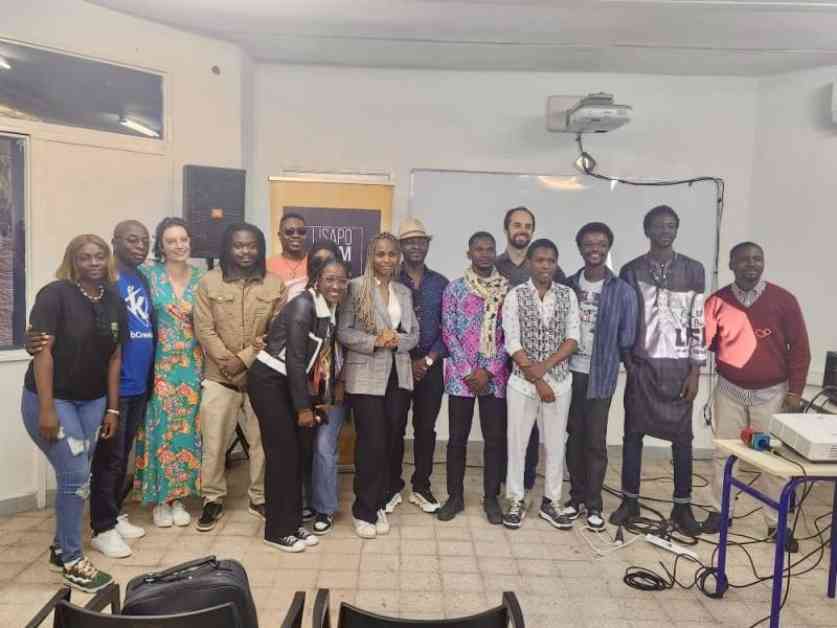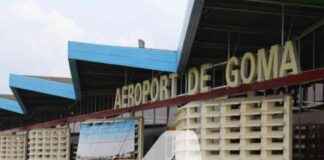Young Filmmakers Embark on Creative Journey at Lisapo Film Lab
In the bustling city of Kinshasa, a group of aspiring filmmakers has come together for a unique opportunity to hone their craft. Lisapo Film Lab, a hub for writing and developing cinematic projects, kicked off its residency on March 5th with 10 selected projects aiming for growth and fruition. Spearheaded by Emmanuel Lupia, this initiative aims to nurture young talents by providing a conducive environment for creativity, from scriptwriting to production.
Aiming to become a regional platform in Central Africa, Lisapo Film Lab chose to focus on the Democratic Republic of Congo for its pilot edition before expanding to other countries in subsequent editions. Out of 49 submissions, only 8 projects were chosen based on artistic quality, relevance of themes, and authors’ experience. This selection includes 5 projects from Lisapo Film Lab—two series and three feature films—as well as three short films discovered through Fickin Film Industrie. Additionally, two female filmmakers were added to the program to ensure greater gender representation.
Emmanuel Lupia, the visionary behind Lisapo Film Lab, shared, “The aim of Lisapo film lab is to become a regional platform in Central Africa, but for this pilot edition, we chose to start in the DRC. The call for projects was open to all filmmakers in the DRC. A selection committee carefully chose these projects out of the 49 received. We hope that next year the program will open up to projects from the sub-region.”
Among the selected projects are series, shorts, and feature films. Notable entries include “Miseophia” by Manasse Kashala and “Pleine Lune” by Gloire Baniaka in the series category, and “Bling Bling” by Douglas Masamuna, “Nkishi” by Gustave Fundi, “Au-delà des apparences” by Naomie Alimasi, and “Makwela” by Ciara Lelo in the feature film category. Additionally, three short films—”Ngozi” by Primo Maurodi, “Mawa” by Steve Nzongo, and “Mokano” by Bryan Batupe—will receive funding from the French Embassy in the DRC and its audiovisual attaché.
From Concept to Screen
The residency takes place in a serene neighborhood in the Limete commune, away from the city’s hustle and bustle. This six-week incubation goes beyond scriptwriting, encouraging filmmakers to consider all stages of production.
Anthony Krawczyk, audiovisual advisor at the French Embassy in the DRC, highlighted the significance of Lisapo Film Lab, stating, “What’s intriguing about Lisapo film lab is how to transition from an idea to a script, from a script to realization, and from realization to production. This entire value chain is made possible through labs like this, allowing talented directors to take an idea, put it on paper, and then secure funding to turn it into images.”
Participants benefit from the expertise of seasoned professionals who guide them throughout the process. The goal is to prevent a project’s development from becoming a personal burden for the author in the absence of a producer.
Emmanuel Lupia emphasized, “The aim is to support projects because often, the development of a project is a personal burden that the author carries in the absence of a producer. The objective of the program is to allow authors to benefit from the perspectives of others, especially by writing in groups, and benefit from the guidance of all the experts we bring in during the 6-week residency.”
Fostering Cinematic Industry Growth
The opening ceremony of Lisapo Film Lab took place on Saturday, March 8th at the French Institute of Kinshasa, with participants and program partners in attendance. This event marked the beginning of a journey that could potentially transform the Congolese cinematic ecosystem.
Celena, coordinator of Lisapo Film Lab, expressed hope for future editions, stating, “We hope that in the upcoming editions, we will have more partners, which will enable us to have more residents and offer more opportunities to these cinema enthusiasts to participate in the residencies we organize. If we receive 100 applications for the next selection and have partners supporting us, we can accommodate all of them, which will be a source of great pride for us and the participants.”
Lisapo Film Lab is not stopping at its inaugural edition. The call for projects will be renewed next year, with the aim of attracting a larger number of filmmakers and expanding the program to other countries in the region. The Lab will also shift its focus from promoting Congolese cinema internationally to fostering co-productions.
As the sun sets over Kinshasa, a new chapter in Congolese cinema begins, with Lisapo Film Lab paving the way for a vibrant and diverse film industry that showcases the rich tapestry of stories from the heart of Africa.

















